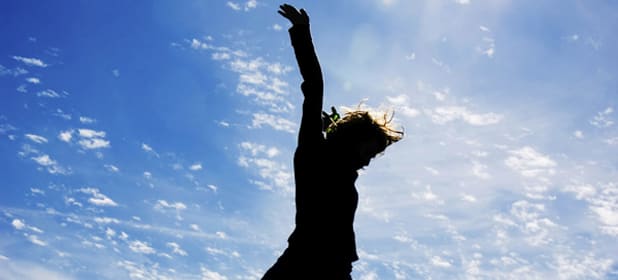 Long life has been said as a blessing from one Jew to another for thousands of years. We also say L’chaim!, to Life!, as a blessing to each other as we take a drink. Two blessings we give, but very different in their ramifications.
Long life has been said as a blessing from one Jew to another for thousands of years. We also say L’chaim!, to Life!, as a blessing to each other as we take a drink. Two blessings we give, but very different in their ramifications.
According the the Harvard School of Public Health, beginning in the year 2012, 10,000 people a day will start turning 65. We are aging differently than previous generations, however. Physically and mentally, the health of today’s 70-year-old now equals that of a 65-year-old in the 1970s. Since that period, deaths from heart disease and many cancers have dipped. And while most older adults have at least one chronic health problem, disability has slowly and significantly declined. It is interesting to note that the United States has been slipping in its longevity ratings compared to other countries. Israel, on the other hand, has been climbing.
When the numbers are added up carefully, there are obvious differences between men and women and people of different races. A newborn boy born in 2004 or after can expect to live a bit more than 75 years, while his sister can expect to live to slightly more than 80. As you grow older, your average life expectancy stretches. For example, while the life expectancy of a newborn in the United States is nearly 78, but a 65-year-old can expect to live 19 years longer, and a 75-year-old for another 12. What is just as important as Long Life is the “l’chaim” part of it—maintaining not only longevity, but quality of life, until 120.
Why did life expectancy increase so much in the 20th century in developed nations? Whether individuals contract a particular disease is usually determined by three things: their lifestyle (including diet and exercise), their environment (such as exposure to infectious microbes or toxins), and their genes. Increased life span surely has nothing to do with genes: our genes today are the same as they were a century ago. Instead, changes in lifestyle and environment are responsible. Changes in the environment—such as better sanitation, the use of antibiotics, and many other improvements in medical care—can claim much of the credit. As for lifestyle, in developed nations, nutritional deficiency diseases largely were eliminated in the last century. Still, not all nutritional changes have been entirely for the better. In the United States, at the turn of the 20th century, most Americans lived on farms or in rural communities. We ate fresh, unprocessed food every day, and we worked hard physically. Today, our diets are less healthful in many ways, and we exercise less. And that leads us to the second blessing—l’chaim!
The doctors can definitely help us live longer with all of the great advancement in medical care and medicines that we have today. But there is so much that we can do that will extend and enhance our lives. And we all understand the value of every second of life. So it is incumbent upon us to take our well-being into our own hands. The Be’er HaGolah at the very end of Choshen Mishpat tells us there is no bigger Hefkerus than not taking care of one’s self and the Rambam in Hilchos Daos 4:1, 14 writes very clearly: “Because for the body to be healthy and wholesome is among the ways of Hashem… therefore a person must distance himself from those things that cause his body damage… And they stated another rule relating to the health of the body: As long as a person engages in physical activity and works hard…no illness will attack him and his strength will increase.”
So what are some practical measures we can take to both extend life and be able to serve the Ribono Shel Olam well during that time? Again, Harvard Medical School gives us some practical tips to do to the best of our ability:
1. Don’t smoke.
2. Incorporate physical and mental activities into daily life.
3. Eat a healthy diet rich in whole grains, vegetables, and fruits, and substitute healthier monounsaturated and polyunsaturated fats for unhealthy saturated fats and trans fats.
4. Take a daily multivitamin, and be sure to get enough calcium and vitamin D.
5. Maintain a healthy weight and body shape.
6. Challenge your mind.
7. Build a strong social network.
8. Protect your sight, hearing, and general health by following preventive care guidelines.
9. Floss, brush, and see a dentist regularly. Poor oral health may have many repercussions, including poor nutrition, unnecessary pain, and possibly even a higher risk of heart disease and stroke.
10. Discuss with your doctor whether you need any medication—perhaps to control high blood pressure, treat osteoporosis, or lower cholesterol—to help you stay healthy.
Most of your health and longevity is in your hands. Hashem has given us all the tools at our disposal in order to maintain our well-being. Let’s use them. Let’s be active, exercise, eat right, stay positive, and manage and reduce stress. Following these tips can “add hours to your day, days to your year and years to your life.”
For more information on programs and events, or content related to health, family, and community please visit: OU Community Services.
Alan Freishtat is an A.C.E. CERTIFIED PERSONAL TRAINER and a BEHAVIORAL CHANGE and WELLNESS COACH with over 19 years of professional experience. Alan is the creator and director of the “10 Weeks to Health” program for weight loss. He is available for private coaching sessions, consultations, assessments and personalized workout programs both in his office and by telephone and skype. Alan also lectures and gives seminars and workshops. He can be reached at 02-651-8502 or 050-555-7175, or by email at alan@alanfitness.com Check out the his web site –www.alanfitness.com US Line: 516-568-5027.
The words of this author reflect his/her own opinions and do not necessarily represent the official position of the Orthodox Union.


